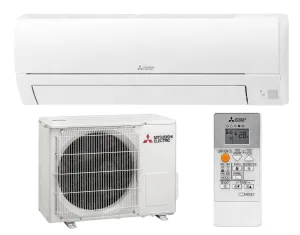Air conditioner for office
In the dynamic world of modern offices, where productivity and employee well-being are paramount, the role of air conditioners becomes crucial. An air conditioner for the office is not just a cooling device; it's a strategic investment in creating a conducive and comfortable working environment. Let's delve into various aspects that make the choice and utilization of office air conditioners significant in the corporate landscape.
1. Cooling Capacity and Workspace Dynamics: Selecting an air conditioner for an office begins with assessing its cooling capacity. The open layout and varying occupancy of office spaces necessitate a unit with sufficient power to ensure consistent and efficient cooling throughout the workspace.
2. Energy Efficiency: Energy efficiency is a key criterion in the choice of office air conditioners. Modern units come equipped with advanced technologies designed to minimize energy consumption. Opting for high energy efficiency not only cuts down operational costs but also aligns with eco-friendly practices.
3. Climate Control and Smart Technologies: Modern office air conditioners offer sophisticated climate control options. From manual settings to smart systems that adjust temperature based on external conditions, these features contribute to creating a personalized and pleasant working environment.
4. Advanced Air Filtration Systems: Maintaining a healthy indoor air quality is crucial for office spaces. Effective air filtration systems that capture dust, bacteria, and allergens are integral to improving air quality, ensuring the well-being of employees.
5. Low Noise Levels: In a focused work environment, the noise generated by an air conditioner plays a significant role. Contemporary models are designed to operate quietly, fostering a serene atmosphere conducive to concentration and productivity.
6. Aesthetic Design and Integration: The aesthetic appeal of an air conditioner is not to be overlooked, especially in office interiors. Modern models are crafted with attention to design details, offering elegant and compact options to seamlessly integrate into any decor style.
7. Remote Control and Smart Technology Integration: The ability to control the air conditioner remotely, either through a remote control or mobile applications, adds a layer of convenience and flexibility for users. This smart technology enables temperature adjustments even when employees are not physically present in the office.
8. Professional Consultation and Correct Installation: Seeking professional consultation before selecting an office air conditioner is crucial to identify the specific needs of the workspace. Additionally, correct installation by experts ensures the optimal functioning of the equipment in the long run.
9. Regular Maintenance: Regular maintenance of office air conditioners is essential for sustaining optimal performance. Scheduled check-ups and cleanings prevent technical issues and extend the lifespan of the equipment.
10. Cost Considerations and Long-Term Benefits: While the initial cost of high-quality office air conditioners might be a consideration, it's essential to view it as a long-term investment. The benefits in terms of employee comfort, productivity, and energy savings often outweigh the upfront expenses.
Conclusion: An air conditioner for the office transcends its role as a mere cooling apparatus. It is a pivotal element in creating a comfortable, healthy, and productive workspace. Making informed choices, coupled with professional installation and regular maintenance, contributes not only to employee well-being but also to the overall success of the business. It's an investment that pays dividends in employee satisfaction, health, and sustained operational efficiency.





















